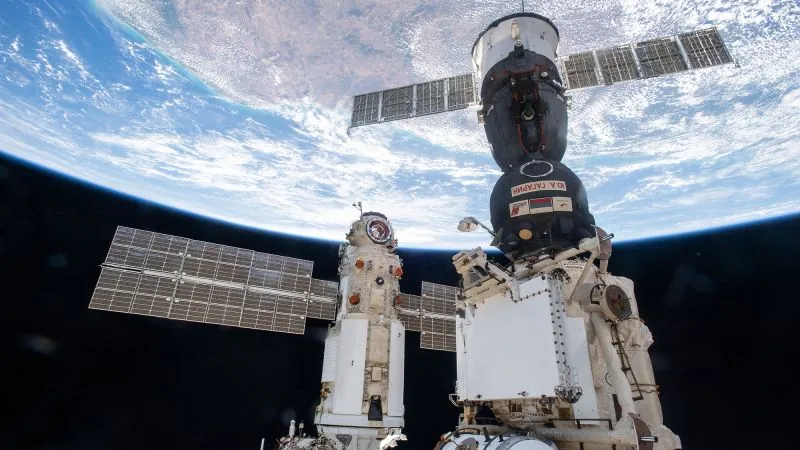
Crisis on the International Space Station: NASA and Roscosmos Clash Over Leaks!
2024-11-15
Author: Kai
A serious leak has been detected on the International Space Station (ISS), specifically in a Russian-controlled segment, igniting a significant disagreement between NASA and Russia’s space agency, Roscosmos, regarding the risks associated with the situation. The space station, which has been routinely inhabited by astronauts since 2000, is now grappling with the potential dangers posed by this leak, which jeopardizes the critical pressurization and breathable air needed for the crew onboard.
Initially identified in 2019, ongoing leaks in a tunnel connecting a Russian module known as Zvezda to the docking port have escalated this year, with the current air loss rate worrying authorities. NASA’s Office of Inspector General labeled this leak as the most pressing issue confronting the aging space station. Former NASA astronaut Bob Cabana raised red flags over the module's structural integrity, expressing concerns about a potential catastrophic failure during a recent advisory committee meeting.
In stark contrast, Russian officials have stated that they do not consider a catastrophic scenario to be realistic, maintaining that operations can continue without significant risk. This divergence in assessment has prompted the United States to demand an evaluation by independent experts from both nations to reach a consensus on the severity of the leaks.
Despite a collaborative September meeting designed to address these issues, the two agencies remain at odds. While Roscosmos has taken measures to reduce the leak rate, astronauts currently face additional safety protocols—including sealing off the affected section of the station unless absolutely necessary.
The leaks are allegedly caused by tiny cracks difficult to detect with the naked eye, and stress on the walls from vibrations related to mechanical systems may be contributing factors. Conflicting opinions from NASA and Russian experts on the causes complicate the situation further.
As the ISS approaches its operational limits, a pathway for safety and future operations is more critical than ever. According to NASA, should the leak rate reach exceedingly dangerous levels, the parts of the station may need to be permanently closed, which would impact logistical operations significantly.
Furthermore, both agencies are looking ahead to the future. NASA is launching plans for a new commercial space station to be developed by private companies, anticipating contracts in 2026. With past collaborations and joint operations facing uncertainty, the situation on the ISS serves as a reminder of the risks involved in space exploration and cooperative science in an era of growing tension and competition in space.
The clock is ticking for the space agencies to come to an agreement, as challenges mount with aging technology. Astronaut safety and the future of the ISS hang in the balance, and the world watches closely as this cosmic drama unfolds.
How will NASA and Roscosmos resolve their differences, and what does the future hold for the ISS and all those who call it home? Time will tell, but the stakes have never been higher!

 Brasil (PT)
Brasil (PT)
 Canada (EN)
Canada (EN)
 Chile (ES)
Chile (ES)
 España (ES)
España (ES)
 France (FR)
France (FR)
 Hong Kong (EN)
Hong Kong (EN)
 Italia (IT)
Italia (IT)
 日本 (JA)
日本 (JA)
 Magyarország (HU)
Magyarország (HU)
 Norge (NO)
Norge (NO)
 Polska (PL)
Polska (PL)
 Schweiz (DE)
Schweiz (DE)
 Singapore (EN)
Singapore (EN)
 Sverige (SV)
Sverige (SV)
 Suomi (FI)
Suomi (FI)
 Türkiye (TR)
Türkiye (TR)